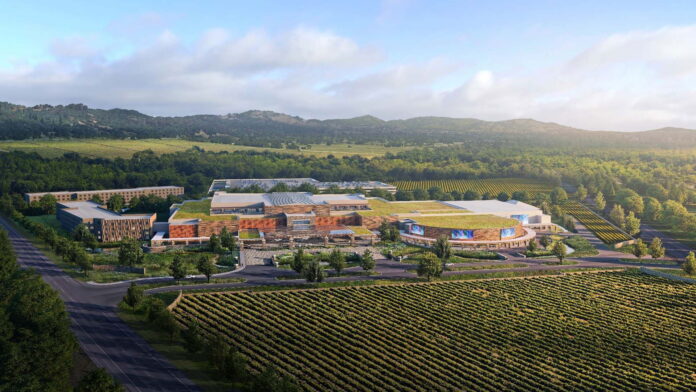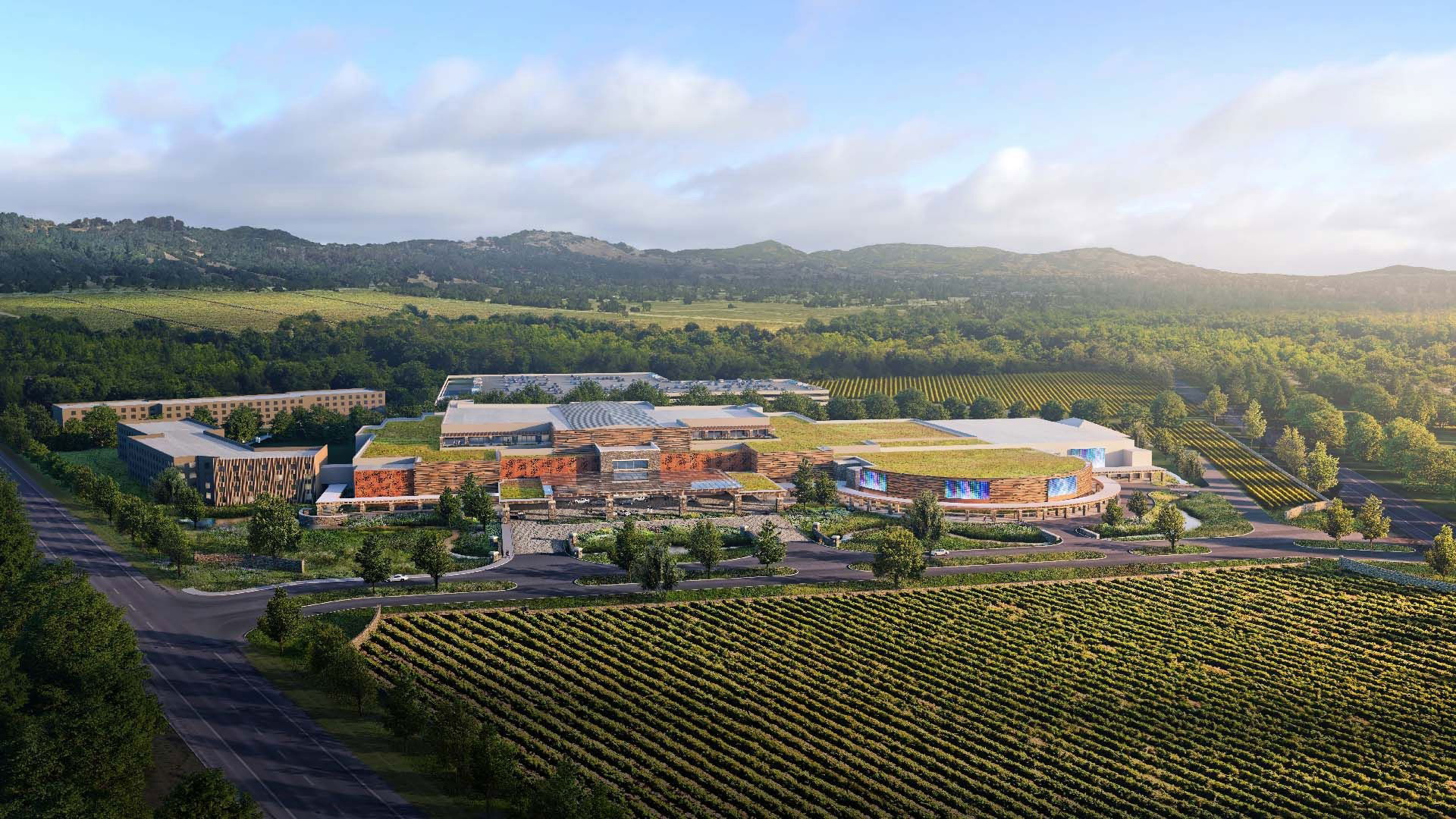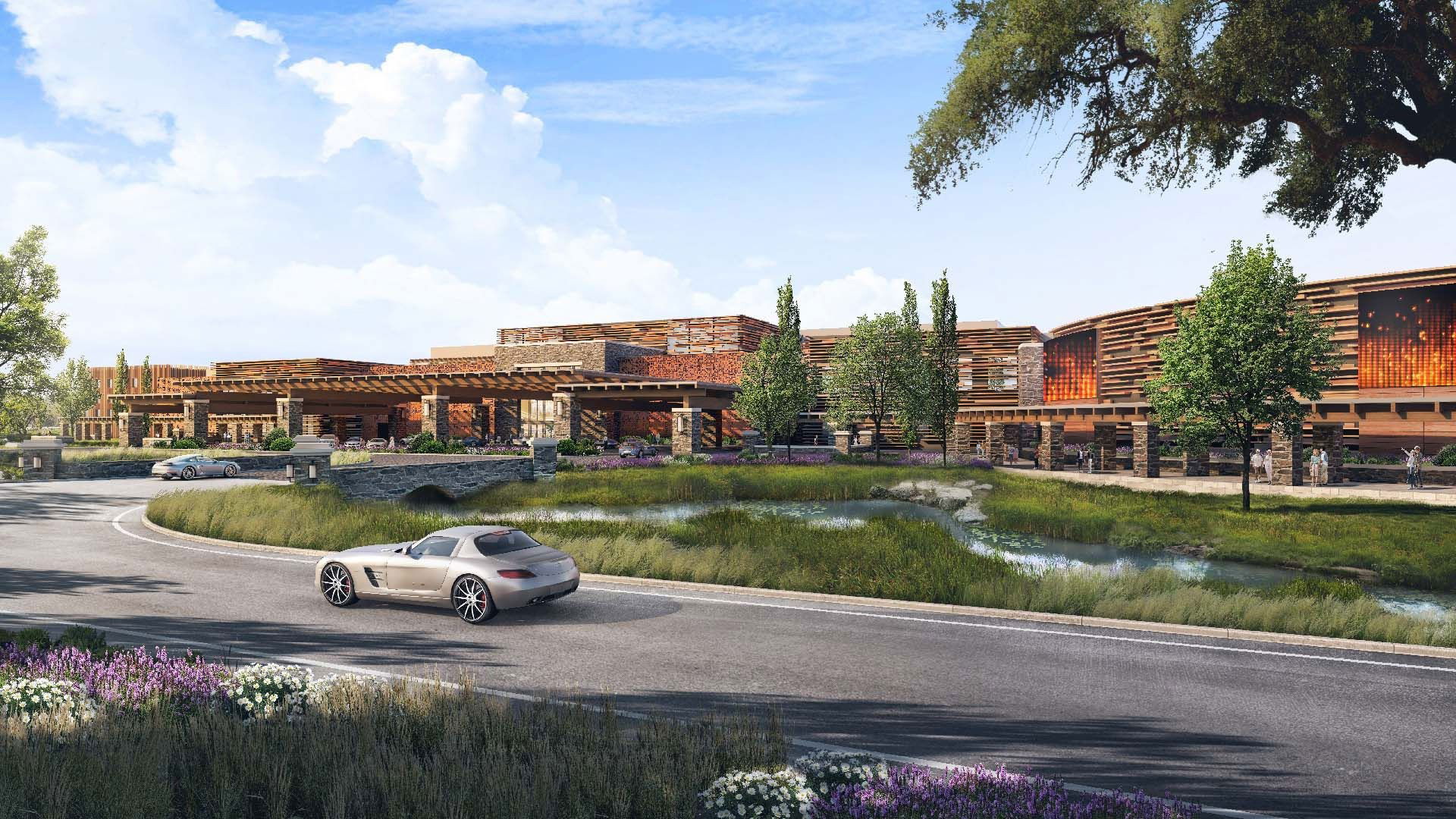The Koi Nation, a small, landless Native American tribe in Northern California, is facing growing opposition to its plan to build a $600 million casino in Sonoma County’s wine region.
Last week, attorneys for the Federated Indians of Graton Rancheria filed a lawsuit, alleging that the Koi Nation’s proposed Sonoma County casino in California will “irreparably harm” Graton Rancheria’s “tribal sovereignty, its rights over Southern Pomo ancestors and sacred objects” on the construction site.
In recent years, the Koi Nation, which has less than 100 members, paid about $12 million for a 68-acre plot on East Shiloh Road near Windsor and just north of Santa Rosa. On it, they plan to build “a destination retreat offering visitors an array of services including a hotel, fine dining, recreation, entertainment and gaming.” The site is less than 15 miles from Graton Resort and Casino, which is owned by the Graton Rancheria.
The casino is backed by the Chickasaw Nation of Oklahoma, a major player in the gambling industry. Construction is estimated at $600 million, and the finished product is expected to include around 400 hotel rooms and 2,500 slot machines. If completed, the Chickasaw Nation will manage and operate the casino.
According to the Graton Rancheria, the Koi Nation has no ancestral right to that land. In a lawsuit filed on November 27 against the U.S. Department of the Interior, the U.S. Bureau of Indian Affairs (BIA), and several federal officials, Graton Rancheria alleges the agencies did not do their due diligence when they studied the Koi Nation’s ties to the area.
Rendering of the proposed Shiloh Resort and Casino
The lawsuit alleges the casino grounds are “outside of the Koi Nation’s aboriginal territory and historic rancheria, which are located over 50 miles to the north.” The Graton Rancheria members say that although both tribes have lived in California for tens of thousands of years, they are “distinct” tribes with “linguistic, cultural, and territorial boundaries [that] have persisted over millennia.”
“Through its project, the Koi Nation is improperly attempting to establish trust lands for gaming outside of its ancestral territory and in the aboriginal homeland of the Tribe,” the lawsuit says.
Sam Singer, spokesperson of the Koi Nation, strongly refuted this claim. “There is no truthfulness or merit to the Graton Rancheria lawsuit which was made in bad faith,” Singer wrote in a statement to SFGATE. “The lawsuit is an effort at gamesmanship to circumvent the BIA’s legal and regulatory process to advance Graton’s own economic interest.”
Rendering of the proposed Shiloh Resort and Casino
Graton Rancheria members aren’t the only ones opposing the project. In August, Governor Gavin Newsom’s office sent a letter to the Department of the Interior strongly recommending they reject Koi Nation’s claim. The letter said the Koi Nation “lacks sufficient historical connection” to Windsor because its “aboriginal homeland … lies approximately fifty miles, over winding mountain roads” away from Lake County.
Newsom’s office argued that allowing the Koi Nation to claim the property as “restored lands” would be “focused less on restoring the relevant tribes’ aboriginal homelands, and more on creating new gaming operations in desirable markets”
The BIA recently finished its last environmental impact study, which is open to public review for 30 days. By late December, the federal government is slated to approve or reject the Koi Nation’s request to put the Shiloh Road property into a federal trust, which would allow the tribe to build a casino on the land.
An approval would be due to a “fatally flawed process,” the lawsuit says, and Graton Rancheria is seeking an injunction that would temporarily stop the project from progressing.
Original article: https://www.yogonet.com/international/news/2024/12/05/87575-california-graton-rancheria-files-lawsuit-to-halt-koi-nation-39s-600m-casino-plan-in-sonoma-county
















